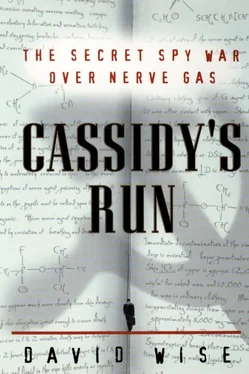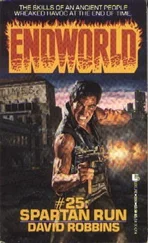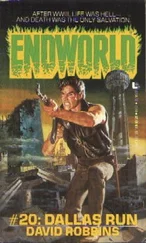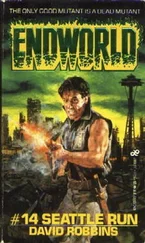By now, Cassidy had a steady girl, Ray Dailey’s sister, Pat. “We always bought the five-cent new song list each week, and we listened to the Lucky Strike Hit Parade together on the radio.
“These were Depression days. Wages were low, but we could buy ground beef four pounds for a quarter. My grandmother helped me buy a car for thirty-five dollars. Gas was seven or eight cents a gallon, and they cleaned your windshield and checked your oil and tires.”
When Cassidy was eighteen, he found work at Erie Forge and Steel Company as a laborer, laying railroad ties. It was tough work, but soon the war in Europe brought better jobs at higher wages. Cassidy was offered a job as third helper on the open-hearth furnace. Wearing dark glasses and long-sleeved wool shirts to protect themselves from the intense heat, the helpers shoveled sand into the furnace, to repair holes caused by the extremely high temperatures.
“There were about five guys in a circle, taking turns,” Cassidy recalled. When the furnace’s hydraulic doors opened, a machine called a charger fed scrap metal into the flames. “What comes out is molten steel.”
After a few months, Cassidy was promoted to second helper. He still had to shovel sand into the furnace, but now he also got to tap it out. “When it’s time to tap it out, you open up the back of the furnace. You poke an air hose into the back of the furnace until the molten metal starts to pour. The crane operator takes the ladle and pours it into an ingot, about fifteen feet by six feet.”
It was hard work, but by now Cassidy was a rugged, handsome young adult. After Pearl Harbor, the steel plant was working overtime, and Cassidy’s friends were going off to war. Because his job was considered essential to the war effort, there was little chance he would be drafted. But Cassidy chafed to join up.
“By late 1942, most of my buddies were in the service, and one of my best friends had already been killed. I told the personnel office I’d like not to be exempt from military service at my next call-up. They honored my request, and I was drafted in February 1943.” Private Cassidy reported to Fort Lee, in Petersburg, Virginia, for basic training, and then was selected to attend school to become a drill instructor.
He rose rapidly through the ranks, and after a year he was promoted to first sergeant, skipping several grades. Cassidy also got engaged to Pat Dailey, but he did not often go home to Erie to see her, because of the expense and lack of leave time.
Hilda Marie Prince, a young woman from Petersburg who worked in the PX, noticed the good-looking sergeant. When Cassidy’s grandmother died in the late summer of 1943, Prince heard about it and urged Cassidy to stop by before he left on emergency leave for the funeral.
He did. “She had a bag of food for me to take on the trip.” Cassidy was touched by the gesture. When he returned, they dated and were married after the war. “Eleven months later, we had a daughter, Shelby Jean.” But Cassidy’s marriage to Hilda went rapidly downhill. “As I look back now, I do believe she saw me as a ticket out of the burg-Petersburg, that is—because the marriage was a bust right from the start.”
In 1947, Cassidy was transferred to the First Cavalry Division in Japan and detailed to the 302d Reconnaissance Company. His wife and daughter remained in the states. After a year, he was shipped back to Fort Lee, where he remained until 1952, when he was assigned to the Far East Command. The Korean War was under way, and Cassidy, again without his wife, was sent to Japan, expecting he would end up in Korea. Instead, he was detached from his unit and assigned to Kokura, Japan, as an administrator in the office that identified the remains of GIs killed in action and shipped them home for burial. It was a grim but fortunate assignment for Cassidy; almost everyone in his old outfit was killed in the war.
A year later, the army allowed dependents to join their spouses in Japan. Hilda and Shelby Jean arrived in Kokura. Hilda was finally out of Petersburg, but she was unhappy in Japan. She wanted to return home but took a job in the PX and stayed on until Cassidy’s tour ended in 1955. They returned to the states and bought a home in the Strawberry Hill section of Alexandria, Virginia. That December, a son, Barry J., was born into their cheerless marriage.
Cassidy was assigned to a clerical job in the adjutant general’s office at nearby Fort Belvoir. It was dreary work, and when Cassidy heard of an opening at the base’s nuclear field office, he applied and was accepted. The office supervised a school for nuclear power plant operators, as well as the Belvoir power plant itself.
In April 1959, Cassidy earned a high-school general-equivalency degree, twenty-four years after he had dropped out of the ninth grade. Four months later, he was called in for the interview that was to change his life forever.
Joe Cassidy, nightclub bartender, steelworker, and career army man, unexpectedly metamorphosed into WALLFLOWER, a neophyte spy and counterespionage agent for the FBI, working against the highly trained, professional officers of the Glavnoye Razvedyvatelnoye Upravlenie. On the face of it, the match seemed unequal.
Could an amateur such as Cassidy really be expected to fool the Russians? If the Soviets ever discovered the truth, they might retaliate against him. He was playing a potentially dangerous game; if he lost, he realized, he might just end up dead.
When Cassidy leftfor Korea in September 1960, he told the second “Mike” that he expected to return in December 1961. But he did not make it back until February 1962.
The FBI, anxious to keep Cassidy in play against the Soviets, wanted him near Washington. The arrangements were made quietly. Much later, Cassidy was told that his records had been flagged; he was not to be given new assignments by the army in the usual manner. Cassidy received orders to report from Korea to the Maryland Air National Guard office at Edgewood Arsenal, on the Chesapeake Bay, fourteen miles east of Baltimore.
Cassidy landed in San Francisco and took a bus across the country. He had hoped the time away might improve relations with his wife. It did not. “When I got back to Alexandria, I called my wife, and she picked me up. At the house, I said, ‘I’ve been assigned to Edgewood.’ ‘Well,’ she said, ‘you’re going to be assigned there by yourself. I’m not going with you.’ So I slept on the couch that night.”
Angered and disappointed but not entirely surprised by the final breakup of his family, Cassidy reported to Edgewood. After he found a furnished apartment, he drove to Newport News, Virginia, to get his teenage daughter, who was living with an uncle. His son, now six, stayed with his mother.
As soon as Cassidy and his daughter were settled in at Edgewood, he got in touch with the FBI. His bureau handlers fretted that the army’s delay in returning him to the states might have spooked the Russians. Although it was two months later than planned, the FBI decided to have Cassidy follow his instructions for recontacting the GRU. There was little else the bureau could do.
Cassidy drove from Edgewood and crushed the crayon in front of the photography store in downtown Washington. The next day, as instructed, with pipe in mouth and book in hand, he strolled along a residential street in Maryland. But no Soviet spy appeared to inquire about the nearest movie theater.
For several months, until May or June, Cassidy dutifully crushed crayons in front of the photo store on the designated days and walked the specified street with pipe and book.
Nothing happened.
“The bureau tried different ways to recontact the Soviets,” Cassidy said. “They put up an index card at the Y saying, ‘Lost watch,’ and it gave my name and phone number at Edgewood. There was no response.”
Читать дальше












